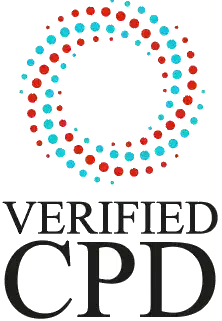Maximize Your CPD, Using These Proven Strategies?
Continuing Professional Development (CPD) often causes concern among professionals. This is because they are not sure exactly what counts towards CPD. Essentially, CPD involves proactive learning and development activities that professionals undertake to enhance their capabilities and remain competent in their careers. This blog post unravels the world of CPD and highlights the activities that count towards CPD.
Diving deeper into the concept of CPD, we find it supports professionals’ evolution. A broad spectrum of activities, from formal learning to practical experience, forms the bedrock of CPD. The emphasis remains on continuous learning, which aids career progression, improves job satisfaction, and elevates professional standing.
The range of activities that constitute CPD is vast and diverse. It spans from formal activities like CPD courses, workshops, and seminars to informal activities such as industry-related readings, self-study, and mentoring. Even practical experiences such as on-the-job training and in-house presentations add up to CPD. Let’s examine each of these elements in more detail.
What Counts Towards CPD?
You can see that there is a wide range of activities that you can count towards your CPD. These can be categories and Formal and Informal CPD activities. The most important point to remember in any CPD activity is that they must have a learning element that in some way improves your professional practice.
Formal CPD Activities:
CPD courses are the core of formal CPD activities. A variety of institutions and organizations offer these courses, both online and offline. Many professionals gravitate towards CPD online due to the convenience, flexibility, and variety of courses available. On successful completion of these courses, you will receive CPD certificates that document your achievements and accumulated CPD hours.
Workshops, seminars, and conferences represent another critical avenue for formal CPD. They provide an interactive platform to gain in-depth knowledge, network with peers, and discover innovative ideas. The organisers usually offer CPD certificates to confirm attendance and active participation.
Informal CPD Activities:
When it comes to informal CPD activities, self-study often leads the way. Reading industry-related books, publications, or articles all count towards your CPD. These activities keep you updated with the latest trends and developments in your field.
Similarly, mentoring also falls under the category of informal CPD. As a mentor, you impart your knowledge and skills to less experienced colleagues. As a mentee, you learn from experienced professionals. Both instances contribute to your CPD points.
Workplace Learning:
Workplace learning is another crucial contributor to CPD. Everyday experiences, on-the-job training, and in-house presentations at the workplace can significantly impact your professional growth. They give you a real-world perspective on your profession and expose you to new situations and challenges. These experiences not only enhance your skills but also count towards your CPD hours.
Having understood the activities that contribute to CPD, you might ask: What exactly counts towards my CPD? Essentially, any activity that enhances your professional knowledge, skills, and abilities counts towards your CPD. However, always bear in mind that not all professions recognize the same activities for CPD. Always check the guidelines provided by your professional body or institution.
Recording CPD activities is as crucial as performing them. Why? Because proper documentation provides evidence of your commitment to professional growth. CPD logs or portfolios serve as practical tools for this purpose. They should capture the details of the activity (such as the name of the course or workshop), the date, CPD points or hours earned, and a reflection on the learning outcome.
Your CPD portfolio is not just a mere collection of CPD certificates. It is a comprehensive record of your learning journey. Therefore, in documenting your CPD activities, take time to reflect on what you learned from each activity and how it contributes to your professional development.
Improve your career with targetted CPD
CPD plays a pivotal role in boosting your career progression. It demonstrates your commitment to learning and staying updated, which can elevate your professional standing. Whether it is an annual appraisal or a job interview, your CPD portfolio can be an impressive testament to your proactive learning attitude. Real-life examples abound of professionals who have scaled the heights of their careers through a strategic focus on CPD.
For instance, consider a marketing professional who took CPD-accredited digital marketing courses to stay updated with the latest online marketing trends. Over time, this additional knowledge paved the way for a promotion to the role of digital marketing manager. Not only did CPD enhance the professional’s skills, but it also led to improved job performance and career progression.
Another example might be a teacher who actively engages in CPD. By participating in seminars, attending workshops, and even mentoring new educators, they accumulate CPD points and hours. This commitment to CPD can open doors to new opportunities, such as leadership roles within their school or educational institution.
On the flip side, professionals who neglect CPD can find themselves at a disadvantage. The rapidly evolving professional landscape demands a continuous learning mindset. Those who fail to evolve and grow may find their skills becoming obsolete, potentially leading to missed opportunities and career stagnation. It is also worth noting that some professions require you to have a minimum amount of CPD per year just to carry on doing your job. For example, a medical Doctor must complete 250 hours over a five-year period.
Final Thoughts on What Counts Towards CPD
In conclusion, CPD constitutes an essential part of a successful professional journey. The activities that count towards CPD extend beyond formal courses and include a plethora of other learning avenues. With CPD certificates as proof of your continuous learning, you can strengthen your professional standing and improve your career prospects.
Remember, your CPD journey is more than just adding up CPD points or hours. It is about constant growth, evolution, and striving for excellence in your professional life. So, take a moment to reflect on your CPD journey so far and plan for your continued development.
The field of CPD is vast and filled with opportunities. Whether you opt for CPD courses, attend conferences, or engage in self-study, remember that every step you take towards learning counts towards your CPD.
Embrace the spirit of lifelong learning. Recognize the impact of CPD on your professional journey. Commit to a consistent CPD practice. Because, in the world of CPD, every learning opportunity is a step towards achieving your career goals.
Let this blog post serve as the beginning of your enlightening journey towards understanding and embracing CPD. Remember, the journey of a thousand miles begins with a single step. Take that step towards your continuing professional development today!

